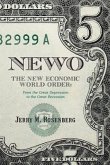There are assumptions that undergird the discipline and practice of political economy. This project addresses this by focusing on one contracted point of tension within political economy that is of great concern for the present age, post-GFC. Namely, how are the presuppositions concerning the nature of temporality within the field of political economy determinate of deficient accounts of speculation, value, and even financialization more broadly? Therefore, we argue that the temporal assumptions of political economy are abstractions that demand a demystifying critique. In particular, we will contest linear notions of time that presume 1) a sequence of moments (ex. past, present, future) and 2) the idea that the future - as such - exists (as presumed by most accounts of speculation). The reason these accounts must be demystified is that they are beholden to a serial abstract repetition that is conditioned by a certain form of knowledge-production; what philosopher Gilles Deleuze calls The Dogmatic and Moral Image of Thought. This Image of Thought forecloses the very possibility of the future - in the first instance - as it delimits difference, by subsuming process and variation to pre-constituted identity. What results from this is that The Image of Thought produces a manner of knowledge-production where such pre-constituted identities become the uncontested (i.e. dogmatic) measure by which all thought ought to proceed (i.e. the moral imperative). This is why The Image of Thought is dogmatic and moral.

![Financial Accounting for School Administrators: Tools for School [With CDROM] Financial Accounting for School Administrators: Tools for School [With CDROM]](https://bilder.buecher.de/produkte/34/34989/34989418m.jpg)





